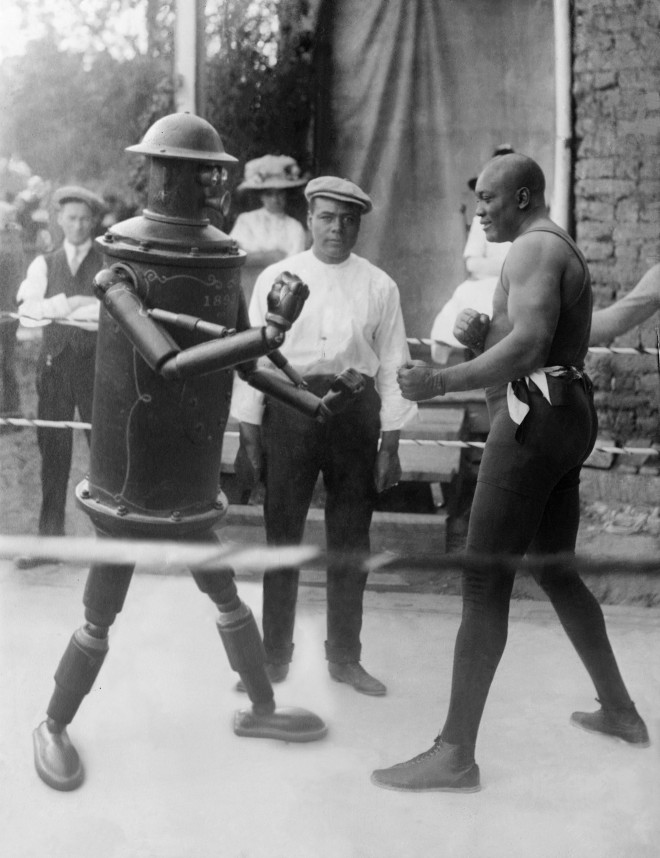Before an automated workforce was a threat to employees, it was a real concern for management (of all kinds). The opening exchanges of a fascinating Salon conversation about technology, democracy, capitalism, and other subjects, between Thomas Frank and David Graeber:
“Thomas Frank:
Let’s start at the beginning: Keynes’ prediction, back in the 1930s, that before too long workers would have all sorts of leisure time because of improving productivity. Is there a history of this idea? I mean, others have argued this as well, correct?
David Graeber:
Well, radical elements in the labor movement began embracing such visions from quite early on. After the successful campaigns for the eight-hour day in the 1880s, people immediately started thinking, can we move this to seven, six, or less. Paul Lafargue, Marx’s son-in-law, and author of The Right to Be Lazy, was already calling for something along those lines in 1883. I have a Wobbly T-shirt with a turn-of-the-century style design that says ‘join the IWW for a new dawn,’ it has a sun rising over the rooftops, and on the sun is written, ‘four-day week, four-hour day.’ I don’t know how old the image really is but I’m guessing it’s from the Teens or the ’20s. In the 1930s, a lot of labor unions did move their industries to a 35-hour week. My mom was a garment worker at the time and that’s how she ended up getting involved in the ILGWU musical review Pins and Needles, because everyone had moved to a shorter week and the union started providing leisure activities.
Thomas Frank:
And when did this expectation finally start dying out?
David Graeber:
By the ‘60s, most people thought that robot factories, and ultimately, the elimination of all manual labor, was probably just a generation or two away. Everyone from the Situationists to the Yippies were saying ‘let the machines do all the work!’ and objecting to the very principle of 9-to-5 labor. In the ‘70s, there were actually a series of now-forgotten wildcat strikes by auto workers and others, in Detroit, I think Turin, and other places, basically saying, ‘we’re just tired of working so much.’
This sort of thing threw a lot of people in positions of power into a kind of moral panic. There were think-tanks set up to examine what to do—basically, how to maintain social control—in a society where more and more traditional forms of labor would soon be obsolete. A lot of the complaints you see in Alvin Toffler and similar figures in the early ‘70s—that rapid technological advance was throwing the social order into chaos—had to do with those anxieties: too much leisure had created the counter-culture and youth movements, what was going to happen when things got even more relaxed? It’s probably no coincidence that it was around that time that things began to turn around, both in the direction of technological research, away from automation and into information, medical, and military technologies (basically, technologies of social control), and also in the direction of market reforms that would send us back towards less secure employment, longer hours, greater work discipline.
Thomas Frank:
Today productivity continues to increase, but Americans work more hours per week than they used to, not fewer. Also, more than workers in other countries. Correct?
David Graeber:
The U.S., even under the New Deal, was always a lot stingier than most wealthy countries when it comes to time off: whether it’s maternity or paternity leave, or vacations and the like. But since the ‘70s, things have definitely been getting worse.”
Tags: David Graeber, Thomas Frank

